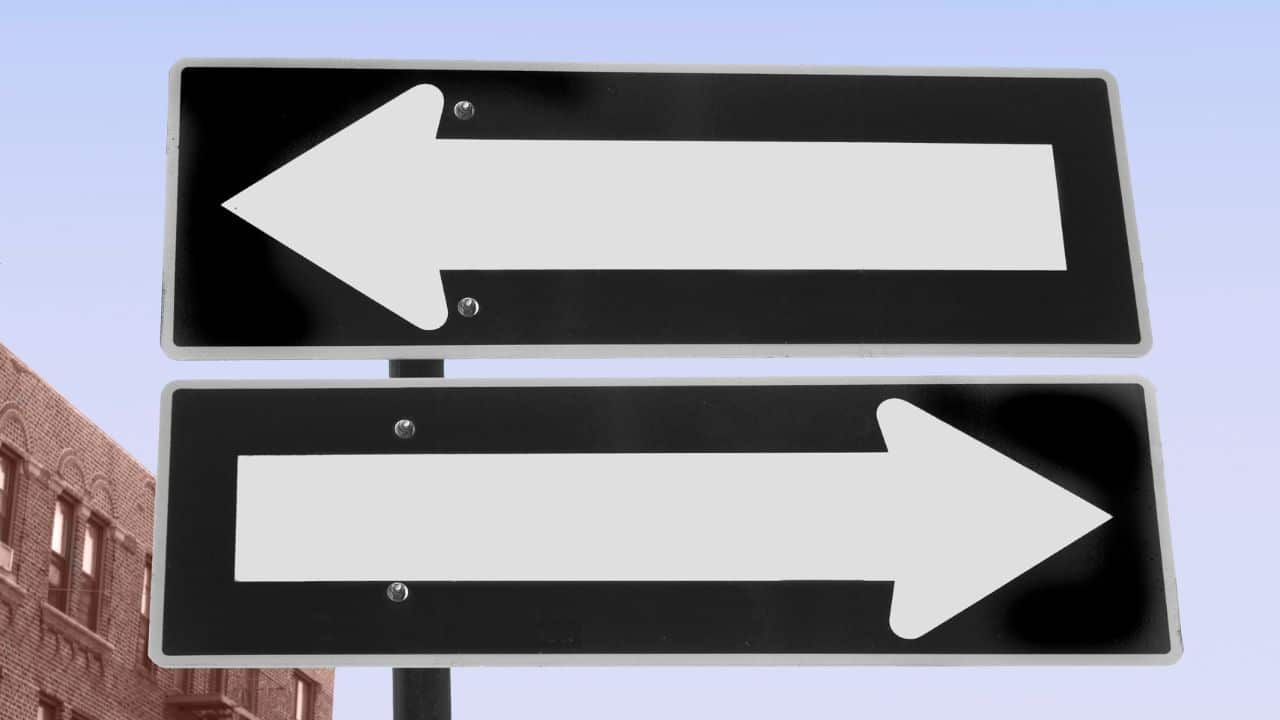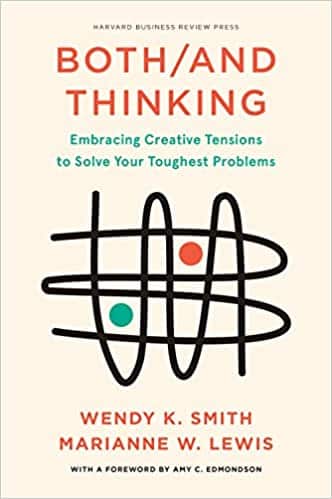What’s more important: work or family? Tips for making choices.

There’s a reason we’re all Marie Kondo’ing our homes, our email inboxes and our lives. There is a lot going on for all of us and with the number of things happening, it inevitably means we are making choices– lots of them. Every. Single. Day.
Not only are the choices tiring but they often feel contingent on one another. A typical thought process can look like this:
Should I take on this big work assignment? That depends on what my partner’s travel schedule looks like for the next few months. And what if my daughter makes the volleyball team? That will mean more complicated schedules and coordination. But if I don’t take this assignment, what are the other possible options that I would be doing instead?
It can start to make your head feel like it’s about to explode.
Welcome to the world of complexity! And where you find complexity, you find paradox – hard choices that often feel like an either/or:
->Should I prioritize my career now which will help my family in the long run OR should I prioritize my family now and focus on my career aspirations later?
->Should I take care of myself OR should I be prioritizing my community and their needs?
->Should I stay at my job OR take the risk of trying a new one?
Too often the best advice we get when we’re trying to wrestle with a knotty problem is to ruthlessly prioritize and pay special attention to our top values in life. While this is naturally good advice, it doesn’t get at the nuances that make paradoxes so heart-wrenching – when it feels like we’re choosing between TWO things that we care about deeply, and that sacrificing either doesn’t feel possible or desirable.
There has been a lot of lip service in favor of a both/and approach, but very few realistic models about how to formulate a both/and response to whatever problem you’re trying to solve.
UNTIL NOW.

Welcome Wendy Smith and Marianne Lewis’s new book that is a masterclass on how to manage paradox, whether you find it in your personal life, work life, your organization(s), and all the combinations thereof.
In Both/And Thinking: Embracing Creative Tensions to Solve Your Toughest Problems, Smith and Lewis have created a nuanced framework to help you step through the paradoxes you are faced with, and come up with much more innovative and balanced answers than you would tend to create on your own.
As they write in their book, many of us know the Clash song and their age-old question of “Should I stay or should I go?” What that sets up is a problem of choosing, the classic either/or. Most of us are amazingly skilled at setting up these types of problems and then using our own tried and true strategies for choosing (pro/con lists, intuition, asking for advice). We struggle, then we pick, and luckily for us, there’s both confirmation and progress bias, so afterwards we can usually come up with all the great reasons why what we chose was the right choice and feel satisfied with the outcome. While this might work a fair percentage of the time, what about those times when we need to honor both sides of the coin? When we’re not willing to make Sophie’s choice and abandon something/someone important to us?
One of the easiest, yet oddly powerful suggestions they had, was to change the framing of your questions. With either/or choices, we’re asking – which is more important, X or Y? For example: Leading the team retreat or attending my family wedding? Taking a new challenging job or shining at my current company where I’m in my element?
Smith and Lewis assert that a great first step is to change the wording of your question to both/and. How can I lead the team retreat AND attend a family wedding? How can I take a new job AND be masterful at my current job? By changing the question frame, we open our brain up to new possibilities that don’t exist in the black and white world of choice. And it’s in the blended place, the yin-yang so to speak, that we can start to tap into the power and opportunity of both options. Want more great ideas about how to solve your biggest paradoxes? Pick up a copy of Smith and Lewis’s book for more of their amazing insights!
I’m curious what paradoxes you’re dealing with in your world? In my world I’m framing up how can I keep my high schoolers on track AND give them the power to succeed and fail based on their own choices. . . it’s still a work in progress!
Read more: What’s Your Decision-Making IQ?